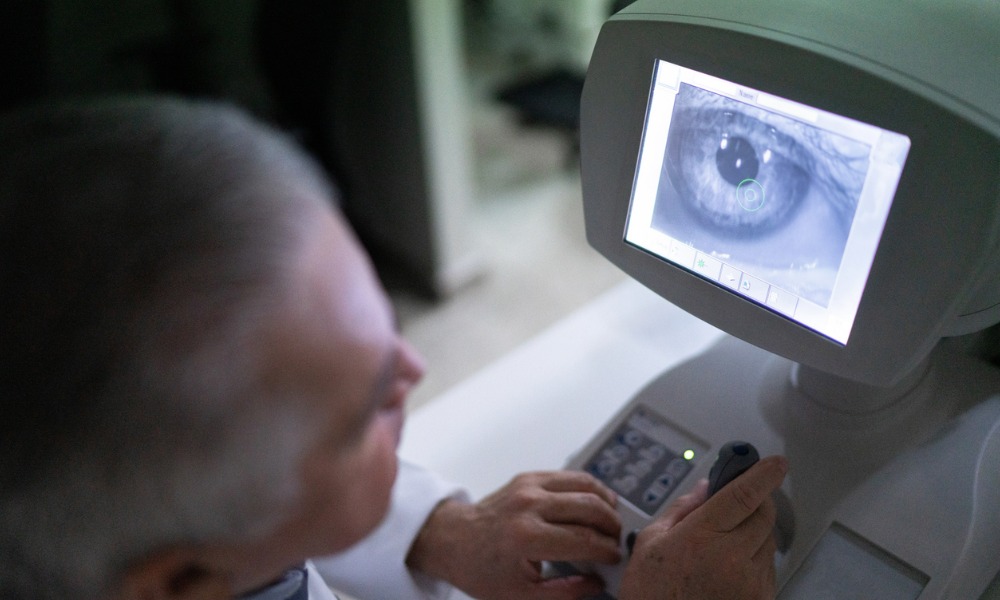
Court found no causation between man’s visual symptoms and prescribed medication

The BC Supreme Court has dismissed a medical negligence case against two doctors who were accused of causing a patient’s alleged glaucoma.
In Buckingham v. Hobza, 2023 BCSC 399, Eric Buckingham filed a medical negligence case against his former family physician, Dr. Petr Hobza and a rheumatologist, Dr. Genevieve Law. Buckingham claimed that the two doctors prescribed the steroid prednisone to him in 2015 for an inflammatory condition called dermatomyositis. His symptoms included an itchy rash on his back, sides, arms and hands, accompanied by muscle weakness.
While prednisone effectively treats Buckingham’s condition, it has various side effects. Buckingham alleged that he developed glaucoma due to elevated pressure within his eye, called intraocular pressure, a known potential side effect of prednisone, which has seriously damaged his vision.
Buckingham further alleged that the doctors failed to obtain informed consent before prescribing the medication and failed to meet the standard of care in monitoring his condition after he began taking it.
The doctors disputed that Buckingham has glaucoma. Instead, they suggested that another drug with a rare toxic effect caused his visual symptoms. They also maintained that they appropriately communicated the risks of taking prednisone to the patient and met the standard of care in their treatment of him.
Buckingham claimed that Dr. Hobza and Dr. Law did not inform him about the specific risk of elevated intraocular pressure from prednisone or recommended having his intraocular pressure checked while taking it. Buckingham asserted that if the doctors had informed him of this risk, he would have “asked for an alternative” medication.
Buckingham brought the case to the BC Supreme Court, which noted that obtaining informed consent for medical treatment requires physicians to disclose the nature of the proposed treatment, its gravity, material risks, and any special or unusual risks without being questioned. They must also answer any specific questions the patient poses regarding the risks involved.
The court further said that the plaintiff is burdened with establishing that a reasonable person, in their position, would not have consented to the treatment upon being adequately informed of the risks. The plaintiff must then show that the undisclosed risk materialized and caused the harm complained of.
The court found that continuing with high-dose prednisone for more than four weeks, as prescribed to the plaintiff, is a material risk that a reasonable person being prescribed the drug at that dose and duration would want to know about.
The court noted that four percent of the population is vulnerable to their intraocular pressures being raised by prednisone. There are no symptoms until permanent damage has been done to the optic nerve. The court also found abundant evidence that prednisone is the “first-line treatment” for dermatomyositis and that there are no alternatives. Failing to treat the condition could lead to serious health consequences for the patient. Based on the evidence, the court found that Buckingham would have taken that treatment even if he had known of the risks.
The court ultimately found that Dr. Law was negligent in monitoring intraocular pressures when prescribing high-dose prednisone for more than four weeks. The court explained that if there has been a breach of the duty of care, the plaintiff must then show on a balance of probabilities that “but for” that negligent act, the injury would not have occurred.
The court found that the damage to Buckingham’s optic nerve did not have any glaucoma characteristics. Consequently, his visual symptoms were not due to glaucoma resulting from the prednisone use that Dr. Law had prescribed. The court found that “it was more likely than not” that the cause of Buckingham’s visual symptoms was a rare condition called methotrexate toxicity.
The court ultimately found no causation between Buckingham’s visual symptoms and the prednisone used. As a result, the court dismissed the medical negligence claims against the two doctors.